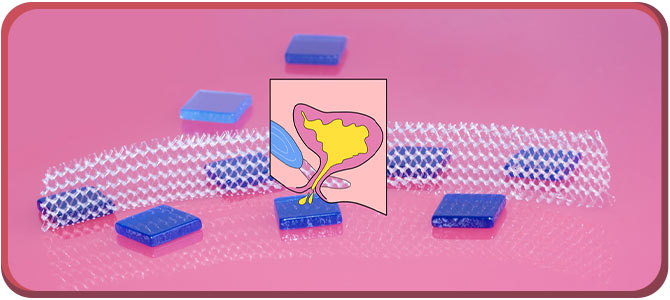Tension-Free Vaginal Tape Procedure in Arcadia, and Glendale CA
The Tension-Free Vaginal Tape (TVT) procedure is a minimally invasive surgery used to treat stress urinary incontinence in women by providing support to the urethra. This outpatient procedure involves placing a mesh tape under the urethra to create a hammock-like support, significantly improving bladder control with a quick recovery time. Dr. Prema Kothandaraman offers Tension-Free Vaginal Tape Procedure at The Ob-GYN & Incontinence Center. For more information, contact us today or book an appointment online. We have convenient locations to serve you in Arcadia, and Glendale, CA.


Table of Contents:
What is a stress incontinence tape procedure?
How long does a trans obturator tape procedure last?
Is trans obturator tape the same as TVT?
What is the recovery time for bladder tape surgery?
At The OB-Gyn & Incontinence Center, located in Arcadia and Glendale, CA, we specialize in providing advanced treatments for female urinary incontinence, including the Tension-Free Vaginal Tape (TVT) procedure. This minimally invasive surgery is designed to offer long-lasting relief by providing support to the mid-urethra, effectively reducing symptoms of stress urinary incontinence. Our experienced medical team is committed to delivering personalized care, ensuring that each patient receives the most appropriate and effective treatment to improve their quality of life.
A stress incontinence tape procedure, commonly referred to as Tension-Free Vaginal Tape (TVT) surgery, is a minimally invasive technique used to treat stress urinary incontinence (SUI) in women. The procedure involves inserting a synthetic mesh tape through a small vaginal incision and positioning it under the mid-urethra to provide support. This sling-like support system helps prevent involuntary urine leakage that occurs during physical activities such as coughing, sneezing, or exercising. The tape acts by lifting and providing tension to the urethra, enhancing the closure mechanism of the bladder neck. The TVT procedure is typically performed under local anesthesia, and its minimally invasive nature often results in a quicker recovery time and reduced postoperative discomfort compared to more invasive surgical options. This method has a high success rate, offering many women significant and long-lasting relief from the symptoms of stress urinary incontinence.
The trans obturator tape (TOT) procedure is designed to offer enduring solutions for stress urinary incontinence, boasting a significant long-term success rate. Studies and clinical data suggest that the benefits of the TOT procedure can last for many years, often providing relief for a decade or more. The lifetime of the tape’s effectiveness can vary based on individual patient factors such as age, activity level, overall health, and any subsequent pelvic surgeries or childbirth. The synthetic mesh used in the procedure is designed to be biocompatible and durable, maintaining its supportive properties over a prolonged period. Regular follow-up with a healthcare provider is essential to monitor the condition and address any potential complications, ensuring that patients continue to benefit from this minimally invasive and effective treatment option for many years.
While the trans obturator tape (TOT) and the Tension-Free Vaginal Tape (TVT) procedures both aim to treat stress urinary incontinence by providing support to the urethra, they differ primarily in their surgical approaches and techniques. The TVT procedure involves the insertion of a synthetic mesh tape through a small vaginal incision, with the tape positioned under the mid-urethra via a retropubic route. This method requires the tape to pass behind the pubic bone, creating a supportive sling that helps prevent urine leakage.
In contrast, the TOT approach introduces the tape through the obturator foramen, traveling along a more lateral and horizontal path compared to the vertical path of the TVT. This means that the tape passes through the muscles of the thigh rather than the abdominal wall, which could potentially reduce the risk of certain complications associated with pelvic surgeries, such as bladder or bowel injury. Both procedures are minimally invasive and generally performed under local anesthesia, and they have shown high success rates. However, the choice between TVT and TOT might depend on individual patient anatomy, surgeon preference, and specific patient conditions. Each technique offers a valuable solution to stress urinary incontinence, contributing to improved patient outcomes and quality of life.
The recovery time for bladder tape surgery, such as the Tension-Free Vaginal Tape (TVT) or Trans Obturator Tape (TOT) procedures, generally ranges from a few days to several weeks, depending on various individual factors. Immediately following the surgery, patients may experience mild discomfort, bruising, or swelling in the pelvic area, which typically subsides within a week. Most patients are encouraged to engage in light activities within a few days and gradually resume normal routines, although strenuous physical exertion and heavy lifting should be avoided for at least four to six weeks to allow proper healing.
Many women can return to work and daily activities within one to two weeks, but it is important to follow specific post-operative care instructions provided by the healthcare provider, including avoiding activities that increase intra-abdominal pressure like vigorous exercise or heavy lifting. Pelvic floor exercises may be recommended to strengthen the muscles and enhance recovery. It’s essential to attend follow-up appointments to monitor the success of the procedure and address any complications promptly. Overall, the minimally invasive nature of bladder tape surgery allows for a relatively swift recovery, helping patients experience significant improvement in symptoms with minimal downtime.
We understand that dealing with stress urinary incontinence can significantly impact your quality of life, and we are here to help you find the most effective and comfortable solution. If you have any questions, or if you would like to discuss whether the TVT or TOT procedures are the right option for you, do not hesitate to reach out to our dedicated team. Contact us today or book an appointment online to take the first step towards restoring your comfort and confidence. We have convenient locations to serve you in Arcadia, and Glendale, CA. We serve patients from Arcadia CA, Glendale CA, Monrovia CA, Pasadena CA, Los Angeles CA, Burbank CA, and surrounding areas.


Additional Services You May Need
▸ Urogynecology
▸ Minimally Invasive Gynecology
▸ Monalisa & Medical Aesthetics
▸ Bioidentical Hormone Replacement Therapy
▸ Urinary Incontinence
▸ Pelvic Organ Prolapse
▸ Painful Bladder
▸ Urinary Tract Infection
▸ Genitourinary Syndrome of Menopause
▸ Female Sexual Dysfunction
▸ Urinary Retention
▸ Vaginal Laxity & Prolapse
▸ Postpartum Pelvic Floor Problems
▸ PCOD
▸ Bladder Prolapse Repair
▸ Urgent PC
▸ Fibroids
▸ Excessive Bleeding
▸ Pelvic Pain
▸ Birth Control & IUD
▸ Vaginal & Pelvic Infection
▸ Monalisa Touch
▸ STD
▸ TempsureVitalia
▸ Biote Pellet Therapy
▸ Topical BHRT
▸ Flexsure
▸ Rectal Prolapse Repair
▸ Tempsure ENVI
▸ Minimally Invasive Pelvic Surgery for Incontinence


